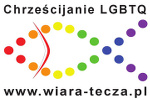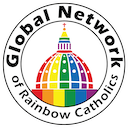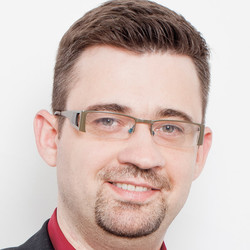 Without any spectacular breakthrough, the World Youth Day still brought a tangible climate change over the presence of LGBTI in the Polish Church
Without any spectacular breakthrough, the World Youth Day still brought a tangible climate change over the presence of LGBTI in the Polish Church
English / Español / Française / Italiano / Portugues
By Marcin Dzierżanowski – Polish journalist, activist of Polish Christian LGBTQ Group Wiara i Tęcza (Faith and Rainbow).
“Pope Francis preaches the Gospel, and the Gospel is for everyone. The World Youth Day is an open formula, homosexuals are also invited to take part”, stated Fr Piotr Studnicki, the spokesperson for Cardinal Stanisław Dziwisz, several days before the Pope’s arrival to Poland. Cardinal Dziwisz, long-time closest associate of Pope John Paul II in the Vatican and Metropolitan of Krakow after the Pope’s death, holds a special place in Poland. It is thanks to his efforts Krakow became the host city for the World Youth Day 2016.
It is little wonder therefore that the words of Cardinal Dziwisz’s spokesperson spread like a wildfire through the whole media world of Poland. In Poland, the statement that would have not caused so much stir in Western Europe or the US, came as a bombshell. Until now, the Polish hierarchs have not spoken of LGBT in a positive way or have acknowledged the presence of homosexuals, bisexuals and transgenders among the faithful children of the Church. Quite the contrary, the last several years have seen a series of exceptionally unfavourable declarations of the Church’s representatives regarding LGBT, in most cases framed in the context of fighting the so-called ‘gender ideology.’ . Unfriendly atmosphere in the Church is amplified by the unhealthy political climate. In terms of legal status of LGBT, Poland seems to be stuck right in the middle between East and West of Europe. While LGBT organisations have been operating freely, there is still no legal recognition of same-sex unions. Situation is aggravated by late last year’s assumption of power by the right wing resorting to national-Catholic rhetoric.
Against such background, any form of inviting or welcoming homosexuals at the World Youth Day by the Polish Church seems to be a glimmer of hope. Undoubtedly, this results from the work of the Wiara i Tęcza (Faith and Rainbow) Group of Polish LGBTQ Christians that has been actively advocating for the improvement of the situation of LGBT in the Church in Poland since the announcement of the Family Synod by Pope Francis. One of the aspects of that activity was gathering responses of some 130 Catholic LGBT from all over Poland regarding their situation in the Church. A summary of these responses was delivered to the representatives of the Polish Episcopate. Members of Faith and Rainbow have also met several bishops, including the aforementioned Cardinal Dziwisz and his two auxiliary bishops. One of those hierarchs was Bishop Damian Muskus, the general coordinator of the preparations for the World Youth Day in Krakow.
That meeting had to do in particular with the preparations for the major youth event. At the initiative of Faith and Rainbow together with the European Forum of LGBT Christian Groups, an LGBT Pilgrims’ Haven opened during the WYD. Over several days in one of Krakow’s cafes, volunteers hosted an informational and pastoral point where homosexual, bisexual and transgender pilgrims could pray together, watch the broadcasts of the central celebrations with the Pope and share their life experiences. The programme included meetings with priests and psychologists, workshops, discussions, movie screenings and worship, both Catholic and ecumenical. Special guests of Haven were pastor Jim Mulcahy, Eastern Europe coordinator for the U.S.-based Metropolitan Community Churches denomination, Brendon Fay, human rights activist and filmmaker from New York and dr Michael Brinkschröder, catholic theologist and sociologist from Munich, activist of the “European Forum of LGBT Christian Groups”.
“World Youth Days gather people every couple of years in one of the world’s major cities. Until now, the only WYD where a safe space initiative for LGBT pilgrims was organised was Cologne 2005. We thought it would be a good idea to do something similar in Poland”, explains Misha Cherniak, one of the project’s coordinators. “Bp Damian Muskus was informed of our plans and noted them in a friendly manner. Yet, as he advised us, there was no chance of including our project into the official WYD programme”.
“Over the six days of the Haven’s operation, we have had between 50 and 60 visitors”, says Artur Barbara Kapturkiewicz, one of the co-founders of Faith and Rainbow who was also actively involved in the Haven project. “We were very happy to see so many quite young pilgrims. For many of them this was the first occasion to share their problems of reconciling their faith and being an LGBT person. Besides Poles, we have welcomed pilgrims from Germany, England, Russia, China and Canada. Our visitors were particularly interested in the lecture on the non-discriminating reading of the Scripture or the workshop on Divine Mercy. We also celebrated the Eucharist together”, says Artur Kapturkiewicz. “We have enjoyed the pastoral care of friendly Roman Catholic priests and ministers of other Christian denominations”, he adds.
Unfortunately, the expectations of some in the LGBT community that the Pope would apologise for the sins against homosexuals, bisexuals and transgenders never materialised. Even though he spoke extensively of excluded and marginalised persons, he failed to mention LGBT explicitly. Yet, in his last homily speaking of Zacchaeus he noted three barriers that a believer has to overcome on the way to Christ. These words are remarkably relevant for LGBT.
The first of these obstacles is smallness of stature. The Pope said that sometimes “we don’t feel big enough, because we don’t think ourselves worthy”. The second obstacle is shame. Zacchaeus “knew that, in trying to climb that tree, he would have become a laughingstock to all. Yet he mastered his shame, because the attraction of Jesus was more powerful”. The third and the final obstacle that the Pope listed was the resistance of the people around Christ. “It was the grumbling of the crowd, who first blocked him and then criticized him: How could Jesus have entered his house, the house of a sinner!”, said the Pope.
For the Faith and Rainbow Group of Polish LGBT Christians, the experience of the World Youth Day and the LGBT Pilgrims’ Haven open during the WYD was in fact an act of surmounting that third barrier. Judging by the high interest that the pilgrims and the media took in the project and by the generally positive tone of most of ecclesial commentators, Faith and Rainbow overcame this challenge quite successfully.
For further information of the LGBT Pilgrim’s Haven activities, read Michael Brinkschroeder´s Article. Read also about the experience of a young pilgrim in the WYD in Eros Shaw´s Chronicle.
 Wiara i Tecza (Faith and Rainbow) is a group of Polish LGBTQ Christians, their families and friends. Changing awareness inside church, WiT works for increasing tolerance—and thereafter acceptance—in the entire society, as well as for supporting kindness among people. Most of the members are of Roman Catholic denomination, but WiT welcomes Christians of any denomination—in ecumenical spirit. WiT also invites people, who are in search of their faith, who are agnostic or atheists, for community and dialogue.
Wiara i Tecza (Faith and Rainbow) is a group of Polish LGBTQ Christians, their families and friends. Changing awareness inside church, WiT works for increasing tolerance—and thereafter acceptance—in the entire society, as well as for supporting kindness among people. Most of the members are of Roman Catholic denomination, but WiT welcomes Christians of any denomination—in ecumenical spirit. WiT also invites people, who are in search of their faith, who are agnostic or atheists, for community and dialogue.


Trackbacks/Pingbacks